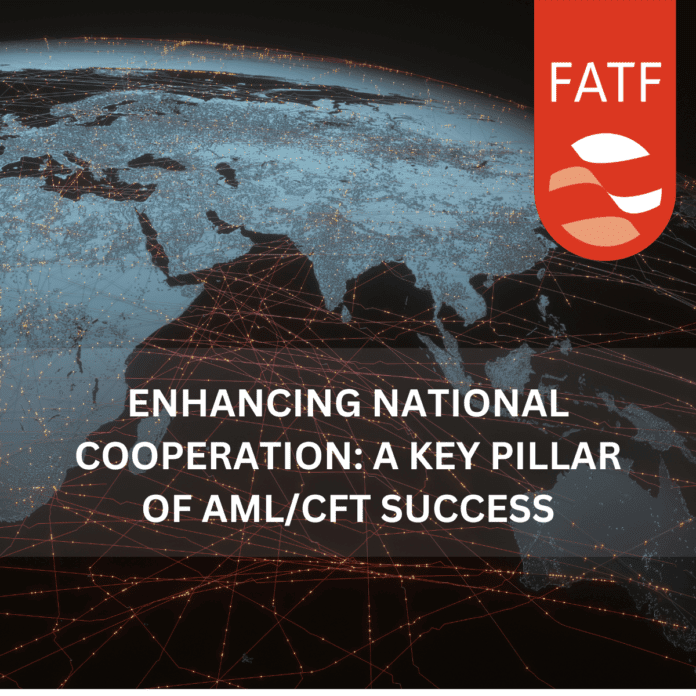This Content Is Only For Subscribers
In an increasingly interconnected world, combating money laundering, terrorist financing, and other illicit activities has become a paramount concern for nations across the globe. In the previous instalment of our “Unveiling the World of AML/CFT” series, we delved into the intricacies of the first recommendation. Now, in this latest article, we shift our focus to the second recommendation within the framework of the Financial Action Task Force (FATF). Recommendation 2, which focuses on “National Cooperation and Coordination,” is one of the pivotal pillars of the FATF framework. In this article, we delve into the significance of Recommendation 2, its key elements, and its role in promoting global financial stability and security.
The Essence of Recommendation 2 – National Cooperation and Coordination
FATF Recommendation 2 underscores the critical importance of national cooperation and coordination in the fight against money laundering, terrorist financing, and other illicit activities. It urges member countries to establish and maintain a national AML/CFT (Anti-Money Laundering/Counter-Financing of Terrorism) policy coordination body, ensuring that various stakeholders collaborate effectively in the pursuit of a common goal – safeguarding the global financial system from abuse by criminals, terrorists, and other illicit actors.
Key Elements of Recommendation 2
- Designation of a National AML/CFT Coordinator: At the heart of Recommendation 2 is the appointment of a dedicated national AML/CFT coordinator. This individual or entity plays a pivotal role in facilitating cooperation and coordination among relevant authorities, including law enforcement agencies, financial regulators, intelligence units, and other key stakeholders. Their mandate includes formulating and implementing the national AML/CFT strategy.
- Collaboration and Information Sharing: Effective cooperation requires the sharing of information and intelligence among relevant agencies. Recommendation 2 encourages countries to establish mechanisms for the swift exchange of information, both domestically and internationally. Timely sharing of data can be crucial in detecting and preventing illicit financial activities.
- Policy and Strategy Development: National AML/CFT policies and strategies should be developed and regularly updated to adapt to evolving threats. These policies should encompass a wide range of measures, from customer due diligence in the financial sector to the supervision of non-financial entities susceptible to money laundering, terrorist financing, and other illicit activity risks.
- Resource Allocation: Adequate resources, including financial, human, and technological, are essential for the effective implementation of AML/CFT measures. Recommendation 2 calls on countries to ensure that the entities responsible for these efforts have the necessary resources at their disposal.
The Global Impact of Recommendation 2 – National Cooperation and Coordination
Recommendation 2’s significance extends far beyond national borders. Its implementation has a direct impact on the global financial system’s stability and security. Here are several ways in which Recommendation 2 contributes to these objectives:
- Preventing Cross-Border Money Laundering and Terrorist Financing: Money launderers and terrorist financiers often exploit weaknesses in one country’s system to move funds across borders. National cooperation and information sharing, as advocated by Recommendation 2, help countries detect and disrupt these illicit flows, thus safeguarding the integrity of the international financial system.
- Enhancing Financial Transparency: By promoting transparency and information exchange, Recommendation 2 contributes to a more transparent global financial system. This transparency not only deters illicit actors but also encourages legitimate businesses and investments.
- Maintaining International Trade: Recommendation 2’s focus on coordination ensures that countries can effectively balance security concerns with the facilitation of legitimate international trade. This prevents the unnecessary hindrance of cross-border transactions.
- Mitigating Systemic Risks: Money laundering, terrorist financing, and other illicit activities pose systemic risks to the global financial system. Effective national coordination, as envisaged by Recommendation 2, helps mitigate these risks by identifying
FATF Recommendation 2, centred on National Cooperation and Coordination, is a cornerstone of international efforts to combat money laundering and terrorist financing. Its emphasis on collaboration, information sharing, and policy development at the national level has far-reaching implications for global financial stability and security. As countries continue to grapple with evolving threats in the digital age, the importance of Recommendation 2 in safeguarding the international financial system cannot be overstated. By adhering to its principles, nations can ensure that their financial systems remain resilient and hostile to the illicit activities that threaten them.


